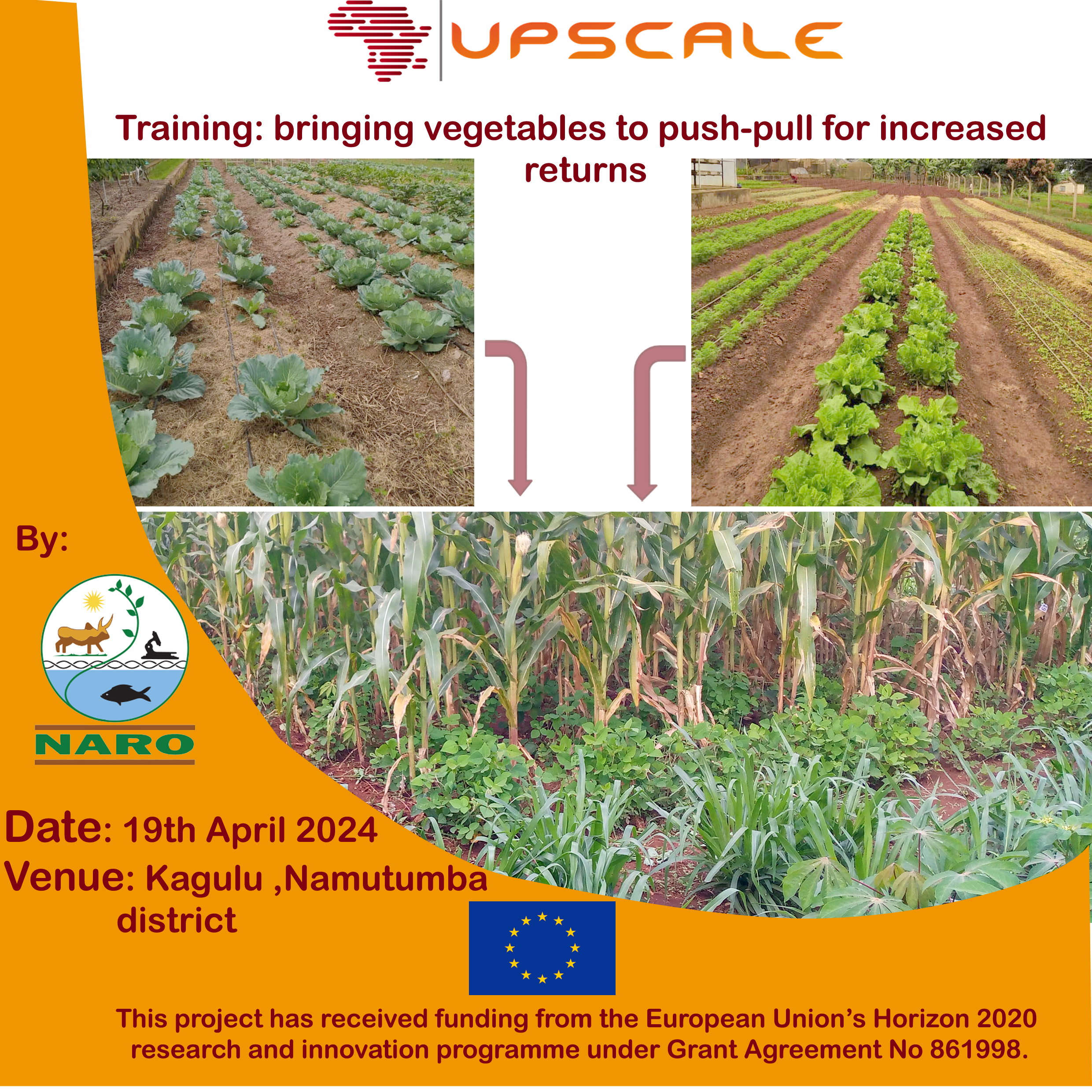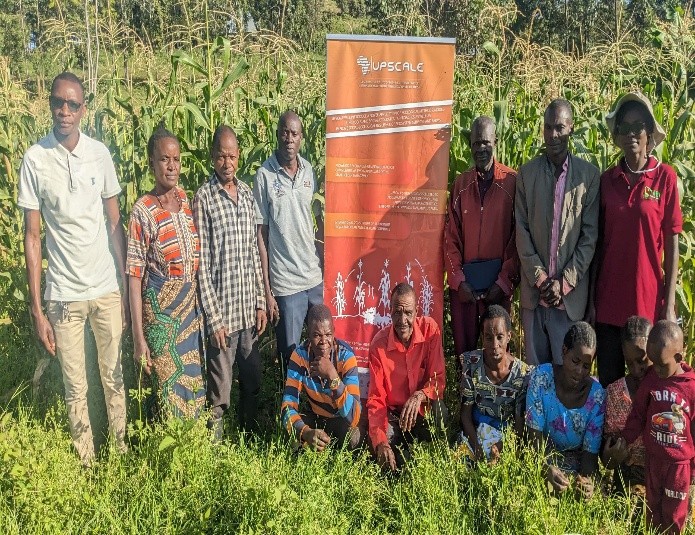Name of the event: Training: Bringing Vegetable to Push-pull for Increased Returns
Date: The training took place on 19 April 2024
Venue: Organized by NARO, training took place in Kagulu village, Namutumba district, Uganda. This event focused on nursery bed preparation and vegetable integration into Push-Pull plots.
The main focus of the UPSCALE project is to bring about large-scale adoption and sustainable intensification of ecologically friendly farming practices based on Push-pull technology in Eastern Africa. Push-pull technology was developed to control parasitic Striga weeds and moths infesting maize fields. The first versions of the classical Push-Pull technology involved the growing of pure stands of maize or sorghum intercropped with perennial push grass such as Desmodium. This presents a unique challenge to small-holder farmers in Eastern Uganda who mainly intercrop maize with at least one other crop, which hinders the uptake of the technology. Also, since the grasses are perennial, the technology becomes less important to farmers who practice crop rotation.
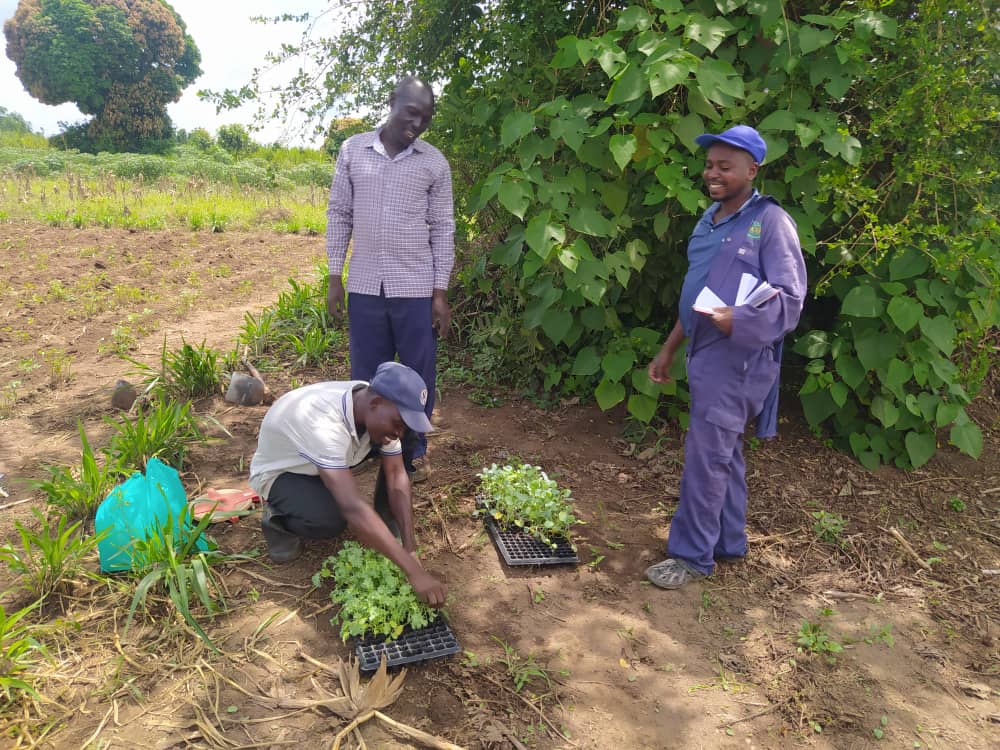
Derrick Oyorwoth (squatting, left) preparing vegetables for transplanting while Moses Lutaakome (right) and Patrick Baligeya watch
After consultations with a wide range of stakeholders and farmers, Push-Pull technology leveraged with the other crops in order to tackle issues associated with intercropping and crop rotation. The suggested crops are vegetables such as kale, tomatoes, eggplants and sukuma wiki. These crops are rated as highly valuable with the opportunity to be sold to the local markets.
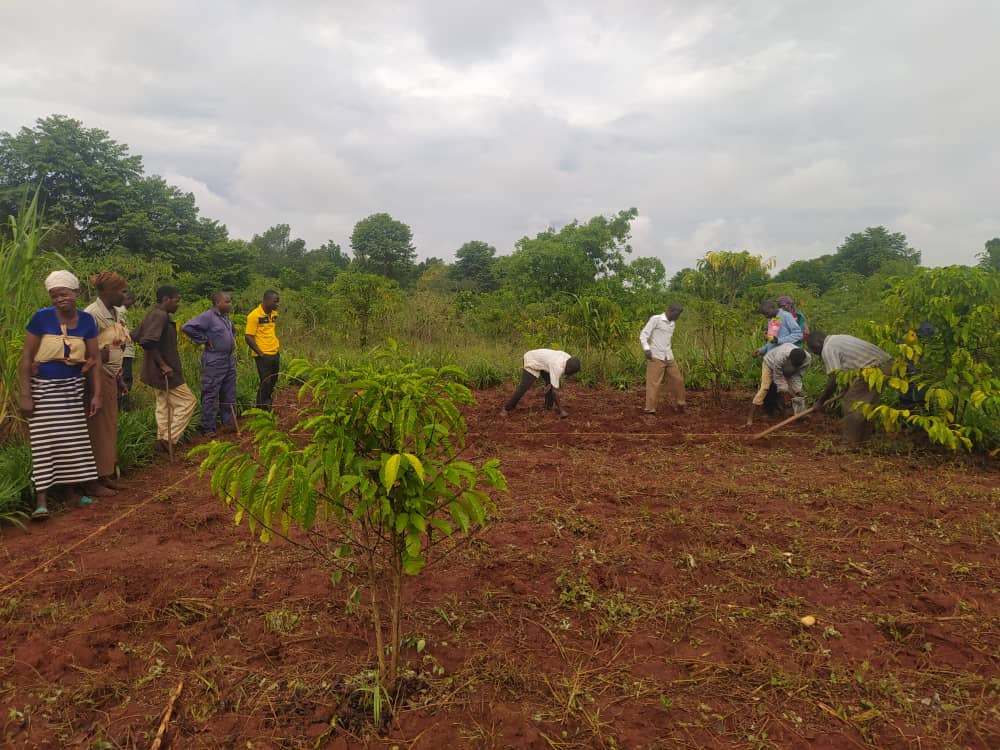
Farmers learn how to plant vegetables in push-pull plots
The training’s objective was to familiarize farmers with integrating other crops, such as vegetables, into Push-Pull plots. Consequently, the farmers received training covering all aspects of managing the selected vegetables within Push-Pull systems. Volunteer farmers with previous vegetable-growing experience have been identified to assist in knowledge transfer following the training.
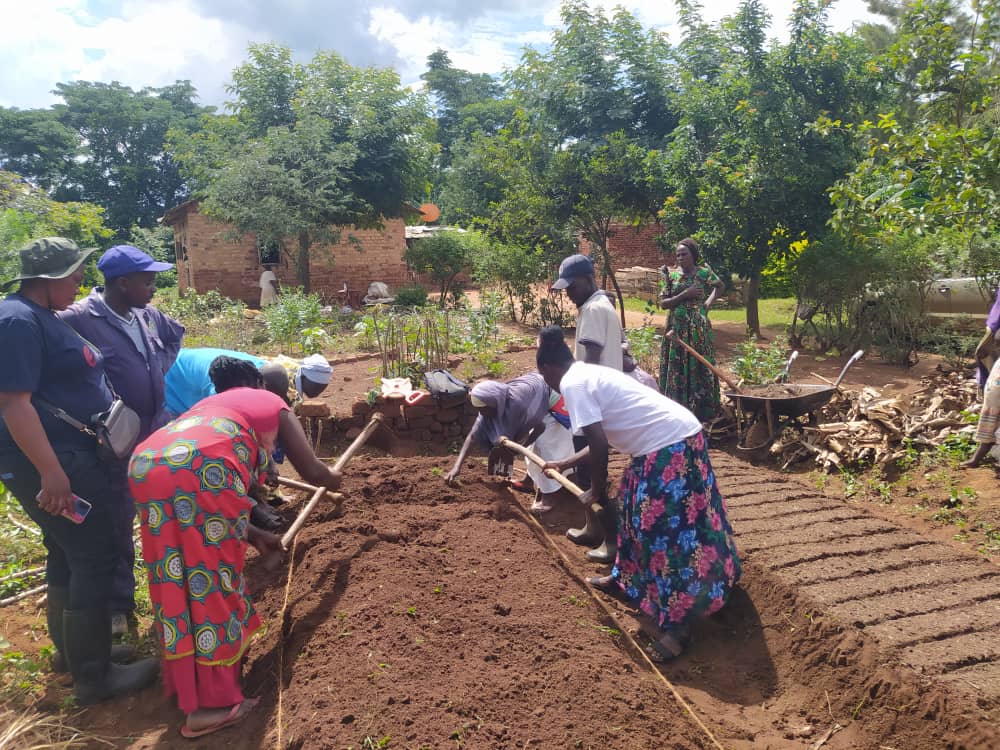
Participants preparing nursery bed before seeding with tomatoes and ‘sukuma wiki’
Two levels of training were conducted:
1) preparation and seeding of the nursery bed;
2) demonstration for transplanting of seedlings into Push-Pull fields.
For this training, 200 vegetable seedlings were bought from a trusted nursery and the NARO team used it for the demonstration.
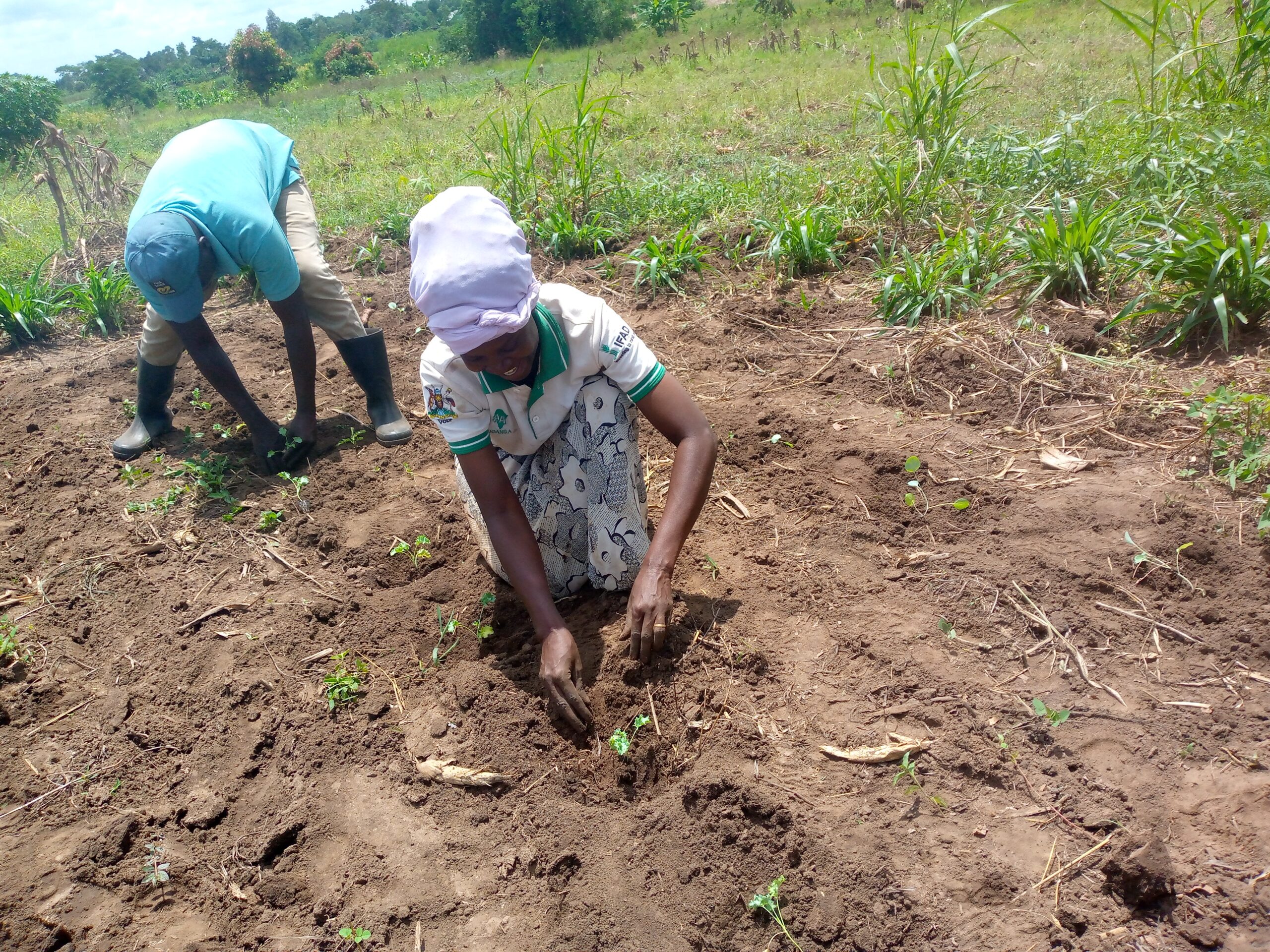
Sarah Mutesi (foreground), a farmer and Bob transplanting vegetables into push-pull

